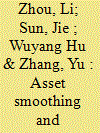| Srl | Item |
| 1 |
ID:
183559


|
|
|
|
|
| Summary/Abstract |
The implementation of renewable portfolio standard (RPS) policy may bring some adverse effects when the region lacks of the capacity to cope with policy stresses. This paper proposes an analytical framework of adaptive capacity index to RPS policy (ACI-RPS) and apply it to evaluate the provincial adaptive capacity to RPS in China over time. The results show that the ACI-RPS in China displayed an increasing trend but declined slightly in 2017 due to the technical bottlenecks. There was a wide disparity in ACI-RPS across the provinces in China, with eastern provinces having the highest but northeastern provinces having the lowest scores. These results indicate that provincial RPS targets need to be set with reference to their adaptive capacity and local energy status. Specifically, more ambitious targets may be assigned to eastern, southern, and northern provinces. It is concluded that the promotion of power grid construction and the acceleration of power marketization are two effective ways to further improve the capacity to cope with RPS policy of a region.
|
|
|
|
|
|
|
|
|
|
|
|
|
|
|
|
| 2 |
ID:
191158


|
|
|
|
|
| Summary/Abstract |
Do households sell assets in order to smooth consumption? The empirical evidence is mixed. Using household- and village-level data in the context of China's poverty alleviation policy, we analyze the relationship between climate shocks and household coping behaviors from the perspective of whether coping strategies to deal with weather shocks are sensitive to the contiguity of destitute areas. Our results indicate that, unlike households living in noncontiguous destitute areas, households struck by weather shocks in contiguous destitute areas tended not to reduce or liquidate assets. To overcome weather shocks, households in contiguous destitute areas instead reduced household consumption, such as food consumption and increased nonfarm working hours. Our findings point to the possibility that the implicit assumption of consumption smoothing coupled with a failure to incorporate explicitly the factor of contiguous regions has led to seemingly divergent findings in the literature regarding consumption smoothing.
|
|
|
|
|
|
|
|
|
|
|
|
|
|
|
|
| 3 |
ID:
099908


|
|
|
|
|
| Publication |
2010.
|
| Summary/Abstract |
In the present paper, we estimate the de facto RMB exchange rate regime, the currency basket, the floating band and the foreign exchange market pressure before and after the reform of the Chinese exchange rate regime in 2005. We find the following stylized facts: the value of the RMB became stable after the reform; the weight of the US dollar remained high in the basket, while other currencies remained statistically significant; and the floating band gradually increased to 10 percent during 2005-2008, and then greatly narrowed from the late summer of 2008 under the assumption of a yearly resetting interval. We find that the foreign exchange market pressure increased from 2005 to 2008. A possible reason is that the weight of the US dollar in the basket was slightly lower than the share of the US dollar in total transactions on the Chinese foreign exchange market. Therefore, it is reasonable for China to adopt a dollar peg exchange rate regime.
|
|
|
|
|
|
|
|
|
|
|
|
|
|
|
|